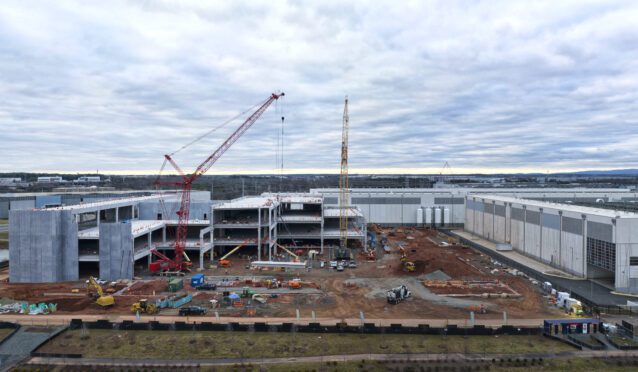
In a recent report, Savills sheds light on a critical issue: Europe urgently needs to double its number of data centres by 2025. While this presents lucrative opportunities, it also brings challenges, especially for newcomers who need to be equipped with the complexities of rapid expansion. After managing various data centre delivery projects over the past decade, Associate Director, Mark Barrell, recently led a feature in Datacentre Solutions magazine, looking at how to meet the substantial demand for constructing massive data centres, swiftly. We’ve learned that flexibility and collaboration are two vital puzzle pieces in solving the industry’s surging demands.
While the pressure to build at speed is rising, supply chain costs, shortages in materials and skilled labour, and persistent power challenges are causing significant disruption. To stand any chance of meeting such ambitious targets at a high standard, all while adhering to a tight budget, collaborative problem-solving among partners with diverse skills and expertise is absolutely crucial.
To navigate an ever-evolving landscape, the ability to adapt (quickly) is essential. When required to tailor to the unique parameters of each locality, uptaking a more modular approach to design could be a game-changer.
The advantages of this approach are evident in saving time and money. It enables quick and flexible construction of large-scale sites with minimal input from designers. This is appealing not only to asset owners and operators but also to developers looking to lease facilities to the data centre market.
In this scenario, collaborative and agile teamwork remains a key component, albeit with a nuanced application. Ultimately, it’s about developing a flexible response that can be swiftly and easily adjusted to accommodate the diverse needs of various end users. The synergy between adaptability and a modular approach not only streamlines operations but also positions us strategically in a market that demands both speed and versatility.
When it comes to prioritising schedules, generally speaking, multinational clients accept the risk element more readily. Adopting global solutions through technology, like a comprehensive BIM strategy, allows early issue identification, facilitating timely coordination to prevent delays and address immediate and future risks. This inclusive approach ensures client involvement, whether local or remote, promoting understanding of design changes and encouraging a cohesive “one team” mentality for improved efficiency.
Navigating country-specific challenges, both environmental and cultural, is a critical consideration in a highly technical and competitive landscape. Balancing risk and reward isn’t just about technical skills; it also requires smart use of collaborative tools to keep things moving forward and handle potential challenges.
Diverse regional landscapes, shaped by factors like culture, working practices, and site characteristics, can significantly influence project success. Consider the contrast between the UK and The Netherlands: The Dutch, with their soft, waterlogged ground, embrace the inevitability of ground movement, employing solutions like polder engineering. In contrast, the UK, with varied geology, takes a preventative stance, using methods like soil improvement and piling. Therefore, sourcing engineering expertise globally requires a readiness for compromise and collaboration.
Tolerating ground movement speeds up and cuts costs, but it may clash with local design teams unfamiliar with the concept. While advantageous for schedules, negotiations may face hurdles if partners resist new approaches.
When Europe’s data centre demands are soaring, the need for speed is more important than ever. Collaboration, transparency, adaptability, and shared responsibility amongst project teams are vital, but working with multidisciplinary teams from different companies and countries will always pose challenges.
Modular and agnostic design strategies are reshaping data centre delivery, and they could be the answer to meeting future fulfilment needs. These strategies enable swift deployment in various settings – be it urban, near-urban, or rural – addressing global capacity demands and user expectations for streamlined schedules.
This collaborative approach is ingrained in our core values at Jubb – and is non-negotiable when it comes to deploying successful hyperscale projects that are both flexible and future-ready.
To find out more about what we do, or if you need expert advice on strategic planning and engineering, get in touch with our team today.